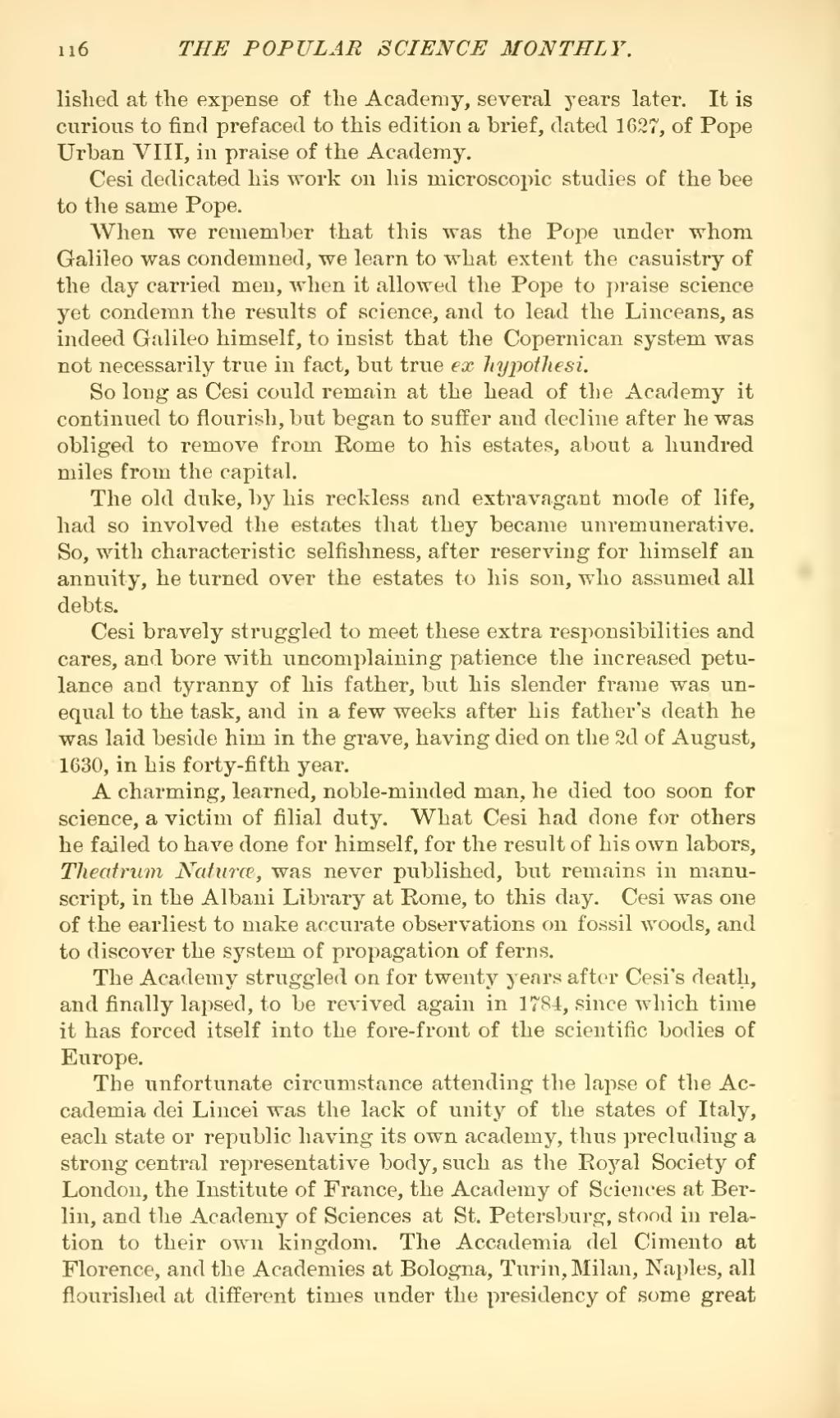lished at the expense of the Academy, several years later. It is curious to find prefaced to this edition a brief, dated 1627, of Pope Urban VIII, in praise of the Academy.
Cesi dedicated his work on his microscopic studies of the bee to the same Pope.
When we remember that this was the Pope under whom Galileo was condemned, we learn to what extent the casuistry of the day carried men, when it allowed the Pope to praise science yet condemn the results of science, and to lead the Linceans, as indeed Galileo himself, to insist that the Copernican system was not necessarily true in fact, but true ex hypothesi.
So long as Cesi could remain at the head of the Academy it continued to flourish, but began to suffer and decline after he was obliged to remove from Rome to his estates, about a hundred miles from the capital.
The old duke, by his reckless and extravagant mode of life, had so involved the estates that they became unremunerative. So, with characteristic selfishness, after reserving for himself an annuity, he turned over the estates to his son, who assumed all debts.
Cesi bravely struggled to meet these extra responsibilities and cares, and bore with uncomplaining patience the increased petulance and tyranny of his father, but his slender frame was unequal to the task, and in a few weeks after his father's death he was laid beside him in the grave, having died on the 2d of August, 1630, in his forty-fifth year.
A charming, learned, noble-minded man, he died too soon for science, a victim of filial duty. "What Cesi had done for others he failed to have done for himself, for the result of his own labors, Theatrum Naturæ, was never published, but remains in manuscript, in the Albani Library at Rome, to this day. Cesi was one of the earliest to make accurate observations on fossil woods, and to discover the system of propagation of ferns.
The Academy struggled on for twenty years after Cesi's death, and finally lapsed, to be revived again in 1784, since which time it has forced itself into the fore-front of the scientific bodies of Europe.
The unfortunate circumstance attending the lapse of the Accademia dei Lincei was the lack of unity of the states of Italy, each state or republic having its own academy, thus precluding a strong central representative body, such as the Royal Society of London, the Institute of France, the Academy of Sciences at Berlin, and the Academy of Sciences at St. Petersburg, stood in relation to their own kingdom. The Accademia del Cimento at Florence, and the Academies at Bologna, Turin, Milan, Naples, all flourished at different times under the presidency of some great
